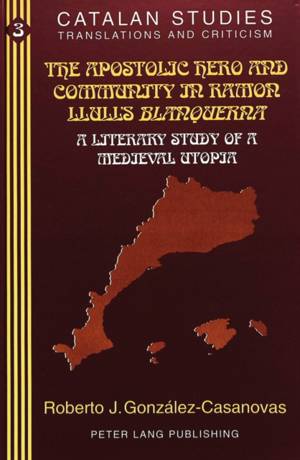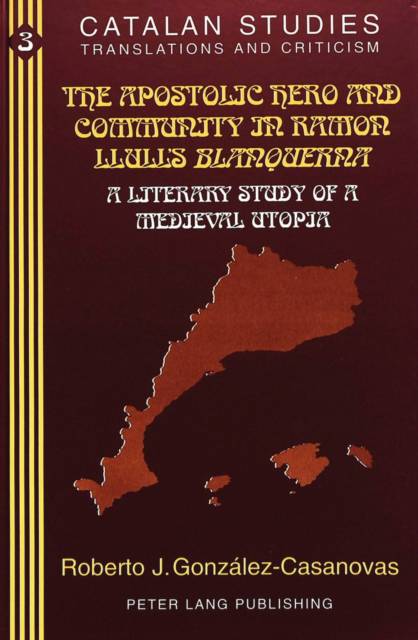
- Afhalen na 1 uur in een winkel met voorraad
- Gratis thuislevering in België vanaf € 30
- Ruim aanbod met 7 miljoen producten
- Afhalen na 1 uur in een winkel met voorraad
- Gratis thuislevering in België vanaf € 30
- Ruim aanbod met 7 miljoen producten
Zoeken
The Apostolic Hero and Community in Ramon Llull's «Blanquerna»
A Literary Study of a Medieval Utopia
Roberto J Gonzalez-Casanovas
€ 51,95
+ 103 punten
Omschrijving
This study examines a masterpiece of medieval religious literature, Blanquerna (1283), written in Catalan by Ramon Llull (1232-1316), Doctor Illuminatus and Apostle to Islam, better known for his theological systems and missionary works. Blanquerna is a popular utopia about reconverting Christians, reforming Rome and all Christendom, and evangelizing infidels and pagans: it shows Blanquerna's spiritual journey as he reforms monastery and countryside, cathedral and city, papacy and Church, and then writes a contemplative guide and mystical allegory. This study applies critical theories of historicism, reception, genre, and rhetoric to a detailed analysis of Blanquerna, as fictional hagiography and apostolic utopia, so as to examine cultural contexts, religious narrative, and exemplary textuality. It relates the novel to Llull's autobiography, literary works, and missionary arts; considers parallels in popular preaching, didactic works and reform movements; and compares exemplary typology and narratology in Blanquerna and in the Castilian version of Barlaam.
Specificaties
Betrokkenen
- Auteur(s):
- Uitgeverij:
Inhoud
- Aantal bladzijden:
- 162
- Taal:
- Engels
- Reeks:
- Reeksnummer:
- nr. 3
Eigenschappen
- Productcode (EAN):
- 9780820419466
- Verschijningsdatum:
- 1/12/1995
- Uitvoering:
- Hardcover
- Formaat:
- Genaaid
- Afmetingen:
- 280 mm x 160 mm
- Gewicht:
- 419 g

Alleen bij Standaard Boekhandel
+ 103 punten op je klantenkaart van Standaard Boekhandel
Beoordelingen
We publiceren alleen reviews die voldoen aan de voorwaarden voor reviews. Bekijk onze voorwaarden voor reviews.











